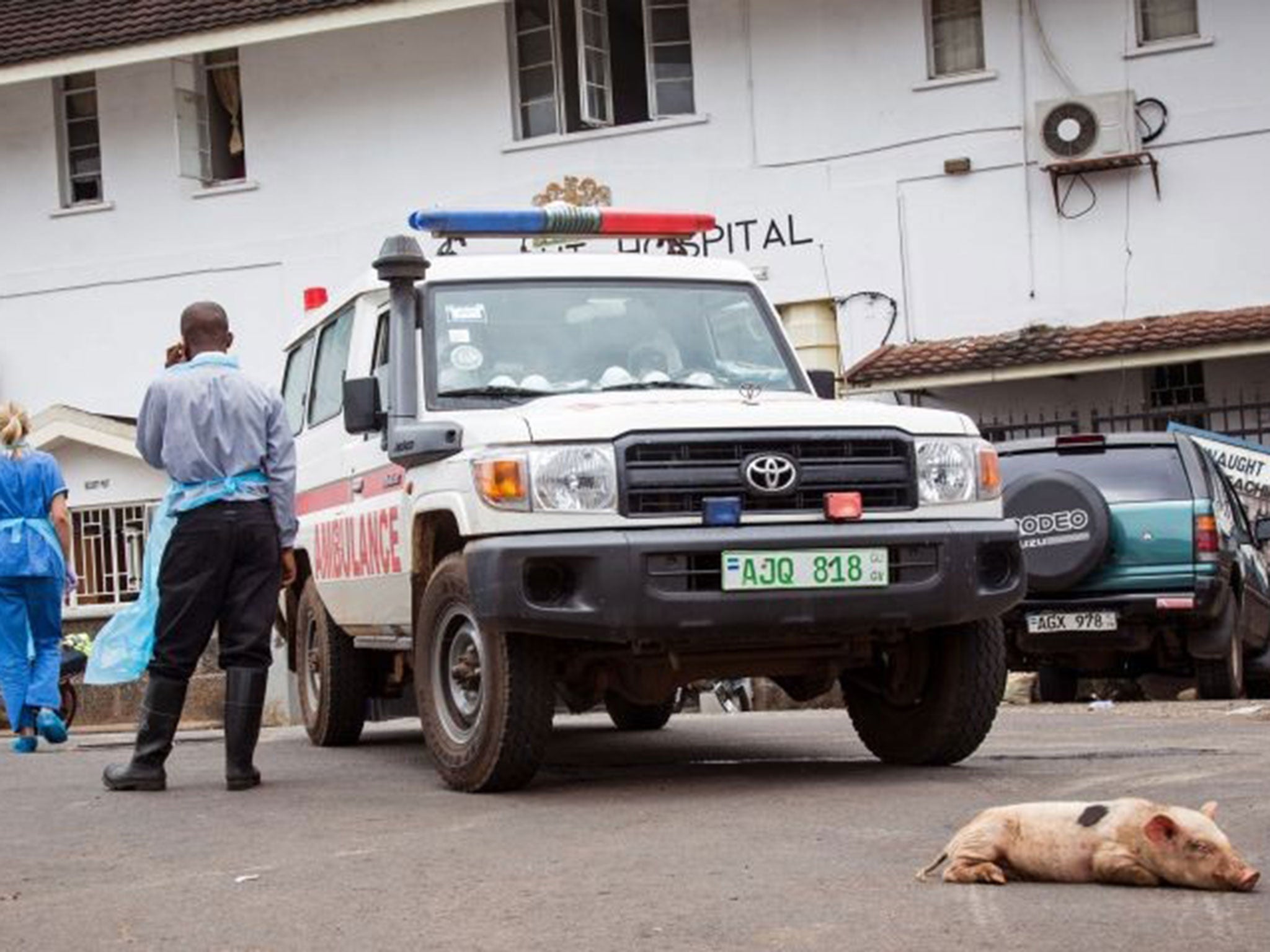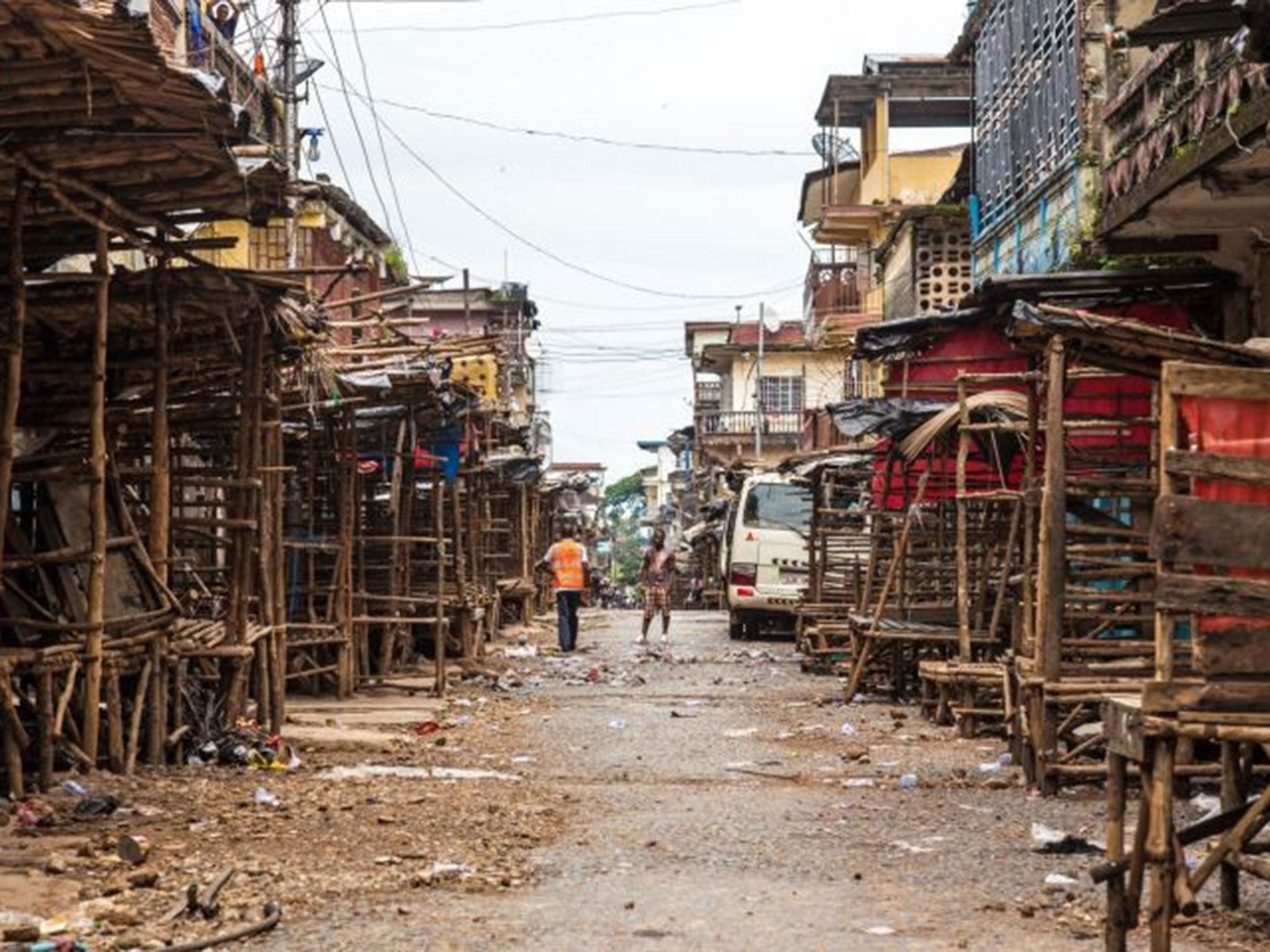Ebola virus outbreak: 92 bodies recovered as more cases found in Sierra Leone lockdown
The controversial emergency measures ordered people to stay in their homes

Your support helps us to tell the story
From reproductive rights to climate change to Big Tech, The Independent is on the ground when the story is developing. Whether it's investigating the financials of Elon Musk's pro-Trump PAC or producing our latest documentary, 'The A Word', which shines a light on the American women fighting for reproductive rights, we know how important it is to parse out the facts from the messaging.
At such a critical moment in US history, we need reporters on the ground. Your donation allows us to keep sending journalists to speak to both sides of the story.
The Independent is trusted by Americans across the entire political spectrum. And unlike many other quality news outlets, we choose not to lock Americans out of our reporting and analysis with paywalls. We believe quality journalism should be available to everyone, paid for by those who can afford it.
Your support makes all the difference.More than 90 bodies have been recovered across Sierra Leone during a three-day lockdown attempting to combat the Ebola epidemic.
The emergency measures came to an end with singing and dancing in the streets on Sunday as people celebrated temporary freedom from the restrictions.
Police said a number of arrests were made in parts of the capital, Freetown, as authorities enforced the lockdown in its final hours.
The Government had controversially ordered the country’s 6 million residents to stay indoors as volunteers circulated to isolate anyone infected and remove the dead, educating households about how to avoid contracting the disease.
Tests during the drive identified 53 new cases of Ebola out of 123 people who contacted authorities with concerns, and dozens of potential sufferers were still awaiting the results on Monday.
The 92 bodies had been recovered by the end of the second day on Saturday and at least 562 people have been killed by Ebola in Sierra Leone so far.

The lockdown was intended to allow 30,000 health workers, volunteers and teachers to visit every home in the country.
But Stephen Gaojia, head of Sierra Leone’s Emergency Operations Centre (EOC), said some areas had still not been reached by Government teams.
“Even though the exercise has been a huge success so far, it has not been concluded in some metropolitan cities like Freetown and Kenema,” he said.
A Government statement on Sunday said 75 per cent of its 1.5 million household target had been reached and thanked local and international partners for their efforts.
While the “stay at home” order had ended, other operations will continue in disease hotspots to educate people and isolate those infected.
“The EOC is thankful to the general public for their cooperation and patience throughout this exercise and will continue to seek such cooperation from the public in the fight against the EVD (Ebola) outbreak in the country,” the statement said.
“Together we can defeat Ebola.”
The crackdown caused a rush to stock up on provisions, causing a spike in prices and leaving the poorest families unable to buy food.
Doctors Without Borders, a medical charity, raised concerns that the harsh measures could lead people to conceal cases and hide bodies, increasing the risk of infection spreading.
Several specialist Ebola treatment facilities have been set up, including a 62-bed British centre in Kerryrown and units in Kenema and Kailahun.
A Spanish priest with Ebola, Manuel Garcia Viejo, was evacuated from Lunsar in Sierra Leone on Sunday.
He is a member of the Hospital Order of San Juan de Dios and will be treated in a hospital in Madrid, where a priest from the same order, Miguel Pajares, died from Ebola last month.
More than 5,500 people have died in the West African epidemic since March, mainly in Sierra Leone, Guinea and Liberia, and World Health Organisation figures show that 2,630 of those – 50 per cent – have died.
Additional reporting by Reuters
Join our commenting forum
Join thought-provoking conversations, follow other Independent readers and see their replies
Comments